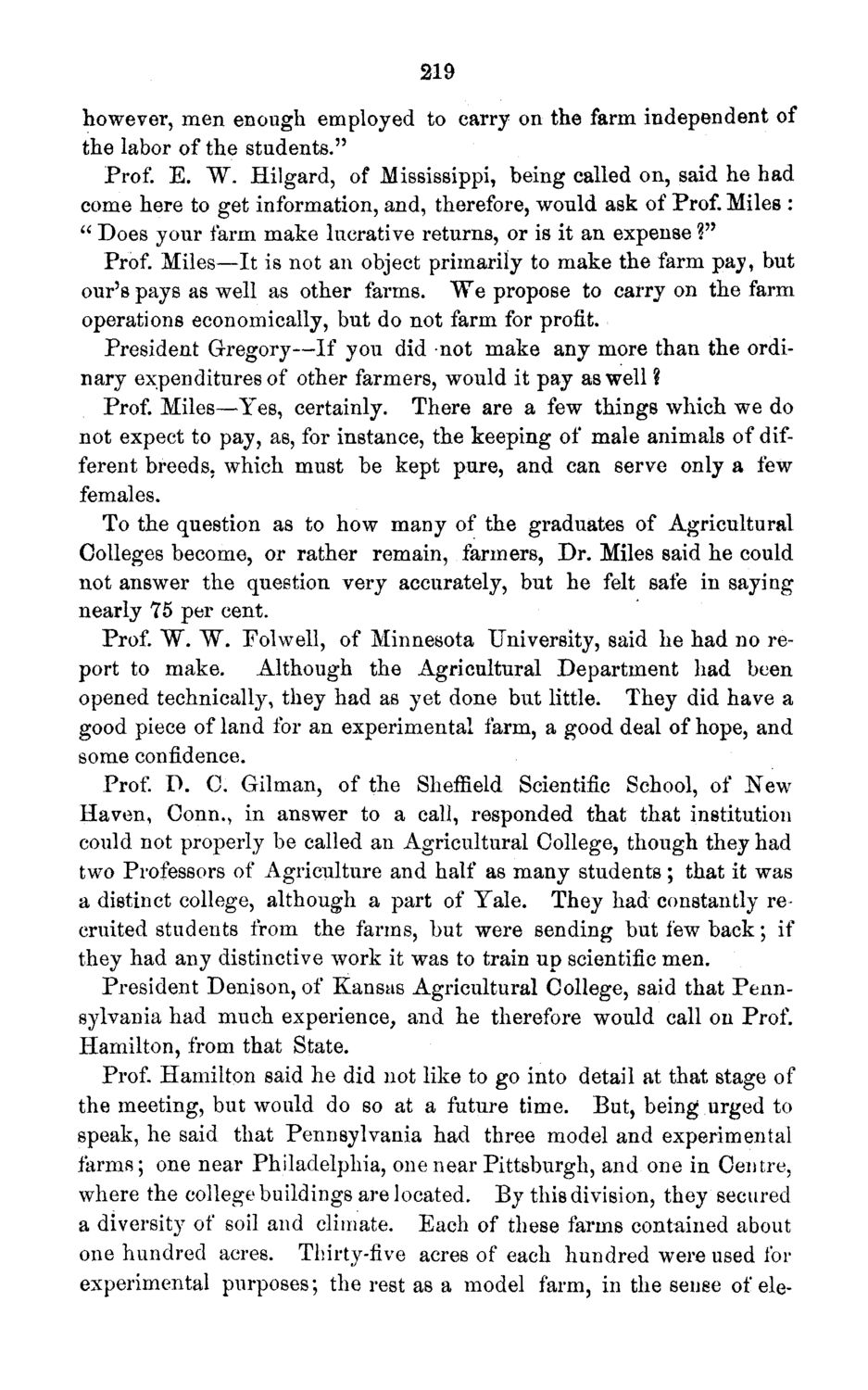| |
| |
Caption: Board of Trustees Minutes - 1871
This is a reduced-resolution page image for fast online browsing.

EXTRACTED TEXT FROM PAGE:
219 however, men enough employed to carry on the farm independent of the labor of the students." Prof. E. W. Hilgard, of Mississippi, being called on, said he had come here to get information, and, therefore, would ask of Prof. Miles : " Does your farm make lucrative returns, or is it an expense ?" Prof. Miles—It is not an object primarily to make the farm pay, but our's pays as well as other farms. We propose to carry on the farm operations economically, but do not farm for profit. President Gregory—If you did not make any more than the ordinary expenditures of other farmers, would it pay as well ? Prof. Miles—Yes, certainly. There are a few things which we do not expect to pay, as, for instance, the keeping of male animals of different breeds, which must be kept pure, and can serve only a few females. To the question as to how many of the graduates of Agricultural Colleges become, or rather remain, farmers, Dr. Miles said he could not answer the question very accurately, but he felt safe in saying nearly 75 per cent. Prof. W. W. Folwell, of Minnesota University, said he had no report to make. Although the Agricultural Department had been opened technically, they had as yet done but little. They did have a good piece of land for an experimental farm, a good deal of hope, and some confidence. Prof. D. C. Gilman, of the Sheffield Scientific School, of New Haven, Conn., in answer to a call, responded that that institution could not properly be called an Agricultural College, though they had two Professors of Agriculture and half as many students; that it was a distinct college, although a part of Yale. They had constantly recruited students from the farms, but were sending but few back; if they had any distinctive work it was to train up scientific men. President Denison, of Kansas Agricultural College, said that Pennsylvania had much experience, and he therefore would call on Prof. Hamilton, from that State. Prof. Hamilton said he did not like to go into detail at that stage of the meeting, but would do so at a future time. But, being urged to speak, he said that Pennsylvania had three model and experimental farms; one near Philadelphia, one near Pittsburgh, and one in Centre, where the college buildings are located. By this division, they secured a diversity of soil and climate. Each of these farms contained about one hundred acres. Thirty-five acres of each hundred were used for experimental purposes; the rest as a model farm, in the sense of ele-
| |